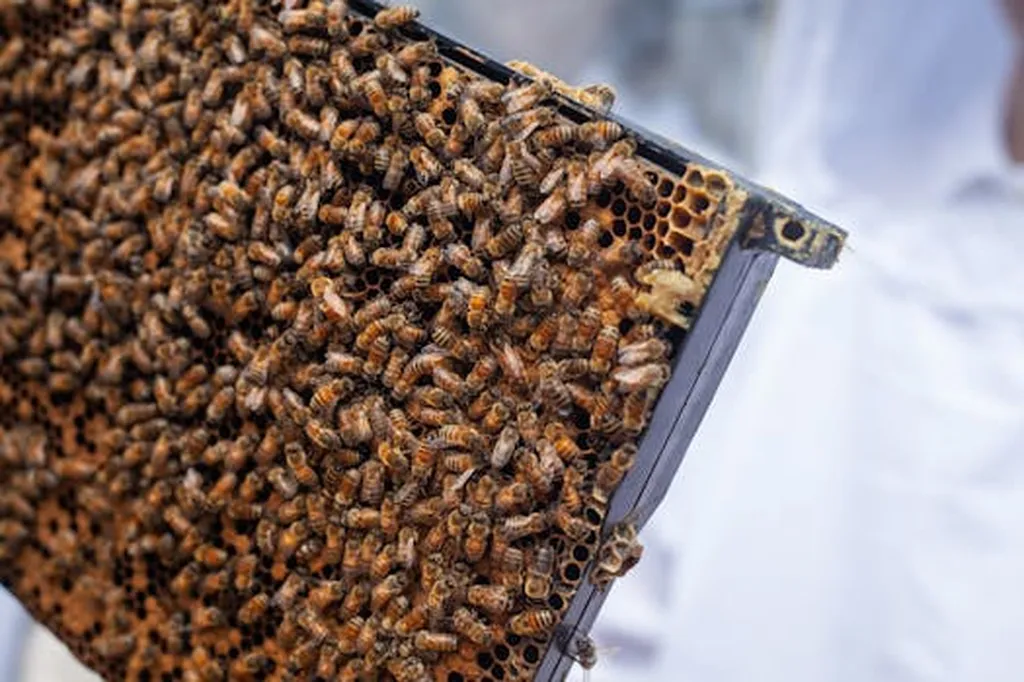In the heart of New Zealand, researchers are buzzing with excitement over a groundbreaking study that could revolutionize beekeeping and, by extension, the agricultural sector. Saba Mustafa, a researcher at the School of Engineering, Computing and Mathematical Sciences at Auckland University of Technology (AUT), has led a team that has developed a sophisticated machine learning model to monitor beehive health through acoustic analysis. This innovation, published in the IEEE Access journal (which translates to “Access to Electrical and Electronics Engineers”), promises to enhance precision beekeeping and support sustainable agricultural practices.
The study addresses a critical gap in beehive health monitoring: the scarcity of data and the challenge of generalization. Mustafa’s team introduced a semi-supervised learning model that employs a Transformer-based encoder-classifier to analyze hive sounds. This model is designed to identify stress-related indicators from audio data collected via smart beehives, a task that has historically been fraught with difficulties due to the complexity of bee bioacoustics.
“Bees are vital pollinators, and their health directly impacts our ecosystems and food production,” Mustafa explained. “By leveraging advanced machine learning techniques, we can now monitor hive conditions more accurately and efficiently, ultimately supporting sustainable beekeeping practices.”
The model utilizes a dataset of 5,336 labeled audio clips from diverse sources, including the NU-hive project and YouTube audio. The audio features analyzed include Mel-frequency cepstral coefficients (MFCCs), root mean square (RMS) energy, spectral centroid, and dominant frequency from Short-Time Fourier Transform (STFT). The Transformer-based encoder-classifier classifies bee behavior within the hive as Normal, NoQueen, or Swarm, and distinguishes stressed from not stressed states.
The results are impressive. The semi-supervised Transformer encoder-classifier achieved 99% accuracy on labeled data, with precision and recall values of 0.99 or higher for the Normal and NoQueen classes, and 0.96 for the Swarm class. Cluster validation produced a silhouette score of 0.47 and a Davies-Bouldin index of 0.57, indicating moderate cluster separability and compactness. The model was able to pseudo-label 94.7% of unlabeled data, validated against the nearest labeled neighbors.
This research has significant implications for the agricultural sector. Healthy bee populations are crucial for pollination, which in turn supports biodiversity and food production. By providing a more accurate and efficient means of monitoring hive health, this technology can help beekeepers and farmers maintain robust bee populations, ultimately benefiting the entire agricultural ecosystem.
“The potential impact of this research is enormous,” Mustafa noted. “It not only supports sustainable beekeeping but also contributes to broader ecosystem conservation efforts. This technology can be a game-changer for the agricultural sector, ensuring the health and vitality of our pollinators.”
As the world grapples with the challenges of climate change and biodiversity loss, innovations like this offer a ray of hope. By harnessing the power of machine learning and advanced data analysis, we can better understand and protect the delicate balance of our ecosystems. This research, published in the IEEE Access journal, is a testament to the potential of technology to drive positive change in the world of agriculture and beyond.

